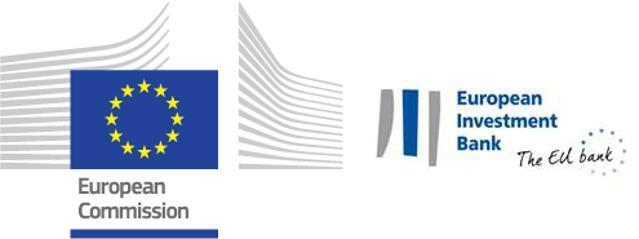European Commission and EIB further clarify statistical treatment of Energy Performance Contracts

The new Guide follows the Eurostat Guidance note on the revised treatment of Energy Performance Contracts in government accounts, issued in September 2017, and explains its practical application, making use of technical assistance resources from the European Investment Advisory Hub (EIAH). The guide is available here.
Marianne Thyssen, Commissioner responsible for Eurostat, said: “I am very pleased to launch a new guide today that clarifies how investments in energy efficient infrastructure should be statistically treated. This will help all stakeholders involved in commissioning, financing and undertaking energy performance contracts. This is a win-win for public authorities and private stakeholders, with a clear understanding of the impact on the national budget. I am confident this new guide will encourage both private and public project promotors to step up investments in energy efficiency projects.“
Commissioner for Energy and Climate Action, Miguel Arias Cañete, added: “Thanks to this guide, it will be easier for schools, hospitals, and other public buildings – which make up more than 10% of the overall EU building stock – to invest for the purpose of improving energy efficiency. Energy efficiency measures are also an important means to combat energy poverty, which this Commission aims at tackling at the roots.“
Andrew McDowell, EIB Vice-President with oversight for Energy, said: “Managers of public buildings – such as schools, hospitals and other public agencies – often lack the budget and technical expertise to design and secure finance for energy savings projects that reduce carbon emissions, save taxpayers’ money and make buildings more comfortable for staff and public service users. This new Guide aims to help public authorities to prepare and finance projects, by mobilising private capital and expertise for the benefit of the public sector under Energy Performance Contracts. This is one of many steps that the EIB is taking through our joint “Smart Finance for Smart Buildings” initiative with the European Commission to unlock more energy efficiency investments in public and private buildings.”
The Guide explains in detail how Energy Performance Contracts work and gives a clear overview of the potential impact on government finances. This will help Member States and other stakeholders to better understand the impact that the different features of these contracts have on the classification of the investment undertaken, on or off government balance sheet, and will assist public authorities in taking better-informed decisions when preparing and procuring their EPCs. This Guide is also a helpful tool to provide clarity to public and private promoters in the context of the Investment Plan and remove perceived barriers to investment.
Background
Investment is a key priority for Europe. This is why, with the EIB as its strategic partner, the European Commission launched the Investment Plan for Europe in November 2014. The Investment Plan – the Juncker Plan – focuses on boosting investment to generate jobs and growth by making smarter use of financial resources, removing obstacles to investment, and providing visibility and technical assistance to investment projects. The European Fund for Strategic Investments (EFSI) is the main pillar of the Juncker Plan and provides first loss guarantees, enabling the EIB to invest in more projects that often come with greater risks.
Another major priority is energy efficiency as a part of a low-carbon economy. Here, so-called Energy Performance Contracts, or EPCs for short, can help mobilise private investment and expertise in energy efficiency in public sector buildings. Energy Performance in buildings is part of the legislative package “Clean Energy for all Europeans” – a key element for achieving a resilient Energy Union and a forward-looking climate change policy.
The public sector’s decision to procure energy efficiency projects as EPCs, however, is sometimes influenced by expectations as to their statistical treatment (i.e. impact on government debt and deficit figures). Uncertainty in how to assess the statistical treatment of EPCs can therefore create difficulties and delays in the various stages of preparation and implementation of investment projects.
Eurostat is the Directorate-General of the European Commission providing statistical information to the institutions of the European Union (EU) and promoting the harmonisation of statistical methods across its member states. The organisations in the different countries which actively cooperate with Eurostat are summarised under the concept of the European Statistical System.
The European Investment Bank (EIB) is the long-term lending institution of the European Union owned by its Member States. It makes long-term finance available for sound investment in order to contribute towards EU policy goals.
The European Investment Advisory Hub (EIAH) is a single access point to a wide range of advisory and technical assistance services. The hub is a joint initiative of the Commission and the EIB, which provides technical assistance and tailored advice to private and public project promoters.
For More Information
Practitioner’s Guide on the Statistical Treatment of Energy Performance Contracts
Follow Marianne Thyssen on Facebook and Twitter
Follow Miguel Arias Cañete on Twitter
Follow EIB Vice-President Andrew McDowell on Twitter
Press contacts: